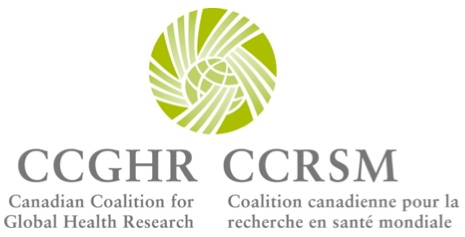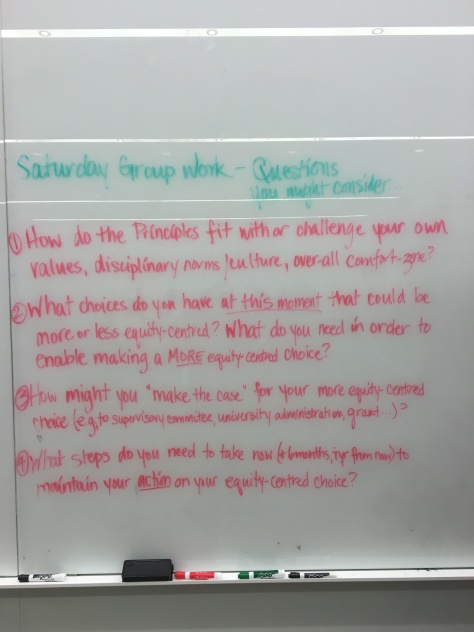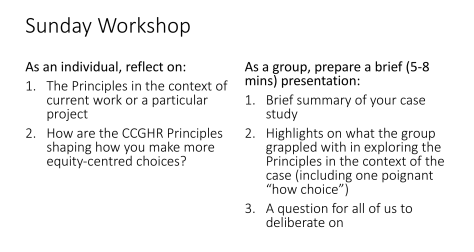Please find below a list and links to articles and pieces around the topics discussed at the OCI 2016, prepared by Katrina Plamondon. Please feel free to add your own suggestions and comments below.
Afsana, K., Habte, D., Hatfield, J., Murphy, J., & Neufeld, V. (2009). Partnership Assessment Toolkit. Ottawa: Canadian Coalition for Global Health Research. Retrieved from http://www.ccghr.ca/wp-content/uploads/2013/05/PAT_Interactive_e-1.pdf
Bozorgmehr, K. (2010). Rethinking the “global” in global health: A dialectic approach. Globalization and Health, 6(1), 19 pages. http://doi.org/10.1186/1744-8603-6-19
Brown, T. M., Cueto, M., & Fee, E. (2006). The World Health Organization and the transition from “international” to “global” public health. American Journal of Public Health, 96(1), 62. Retrieved from http://www.ncbi.nlm.nih.gov/pmc/articles/PMC1470434/pdf/0960062.pdf
COHRED. (1990). Health Research—Essential link to equity in development. http://www.cohred.org/downloads/open_archive/ComReports_0.pdf
(also worth looking at the COHRED site generally: www.cohred.org)
Crane, J. T. (2010). AIDS, academia, and the rise of global health. Behemoth: A Journal on Civilisation, (3), 78–97.
Di Ruggiero, E., Zarowsky, C., Frank, J., Mhatre, S., Aslanyan, G., Perry, A., & Previsich, N. (2006). Coordinating Canada’s research response to global health challenges: The Global Health Research Initiative. Canadian Journal of Public Health / Revue Canadienne de Sante’e Publique, 97(1), 29–31.
Hatfield, J. M., Hecker, K. G., & Jensen, A. E. (2009). Building Global Health Research Competencies at the Undergraduate Level. Journal of Studies in International Education, 13(4), 509–521. http://doi.org/10.1177/1028315308329806
Jogerst, K., Callender, B., Adams, V., Evert, J., Fields, E., Hall, T., … Wilson, L. L. (2015). Identifying interprofessional global health competencies for 21st-century health professionals. Annals of Global Health, 81(2), 239–47. http://doi.org/10.1016/j.aogh.2015.03.006
Koplan, J. P., Bond, T. C., Merson, M. H., Reddy, K. S., Rodriguez, M. H., Sewankambo, N. K., … Consortium of Universities for Global Health Executive Board. (2009). Towards a common definition of global health. The Lancet, 373(9679), 1993–1995. http://doi.org/10.1016/S0140-6736(09)60332-9
Labonte, R., & Spiegel, J. (2003). Setting global health research priorities: Burden of disease and inherently global health issues should both be considered. BMJ: British Medical Journal, 326(7392), 722.
Labonte, R., & Shrecker, T. (2011). The state of global health in a radically unequal world: Patterns and prospects. In S. R. Benatar & G. Brock (Eds.), Global Health and Global Health Ethics (pp. 24–36). Cambridge: Cambridge University Press.
Ministerial Summit on Health Research. (2004). The Mexico Statement on Health Research Knowledge for better health: Strengthening health systems. Mexico City. Retrieved from http://www.who.int/rpc/summit/agenda/en/mexico_statement_on_health_research.pdf
Murphy, J., Hatfield, J., Afsana, K., and Neufeld, V. (2015) Making a Commitment to Ethics in Global Health Research Partnerships: A Practical Tool to Support Ethical Practice. Journal of Bioethical Inquiry. DOI: 10.1007/s11673-014-9604-6.
Musolino, N., Lazdins, J., Toohey, J., & Ijsselmuiden, C. (2015). COHRED Fairness Index for international collaborative partnerships. The Lancet. http://doi.org/10.1016/S0140-6736(15)60680-8
Neufeld, V. (2006). What is Canada doing about “global health research”? McMaster University Medical Journal, 3(1), 32–35.
Neufeld, V. R., & Spiegel, J. (2006). Canada and Global Health Research: 2005 Update. Canadian Journal of Public Health / Revue Canadienne de Sante’e Publique, 97(1), 39–41.
Plamondon, K. M., Bottorff, J. L., & Cole, D. C. (2015). Analyzing data generated through deliberative dialogue: Bringing knowledge translation into qualitative analysis. Qualitative Health Research, 25(11), 1529–39. http://doi.org/10.1177/1049732315581603
Stephen, C., & Daibes, I. (2010). Defining features of the practice of global health research: an examination of 14 global health research teams. Global Health Action, 3, 1–9. http://doi.org/10.3402/gha.v3i0.5188
Yassi, A., Breilh, J., Dharamsi, S., Lockhart, K., & Spiegel, J. M. (2013). The Ethics of Ethics Reviews in Global Health Research: Case Studies Applying a New Paradigm. Journal of Academic Ethics, 11(2), 83–101. http://doi.org/10.1007/s10805-013-9182-y
WHO CSDOH. (2008). Closing the gap in a generation: Health equity through action on the social determinants of health–Final report of the Commission on Social Determinants of Health. Geneva, Switzerland: World Health Organization. Retrieved from http://www.who.int/social_determinants/final_report/csdh_finalreport_2008.pdf


